Rondine di Mare Pesce civetta - Dactylopterus volitans
Pesce civetta Dactylopterus volitans Rondine di Mare Flying gurnard intotheblue.it
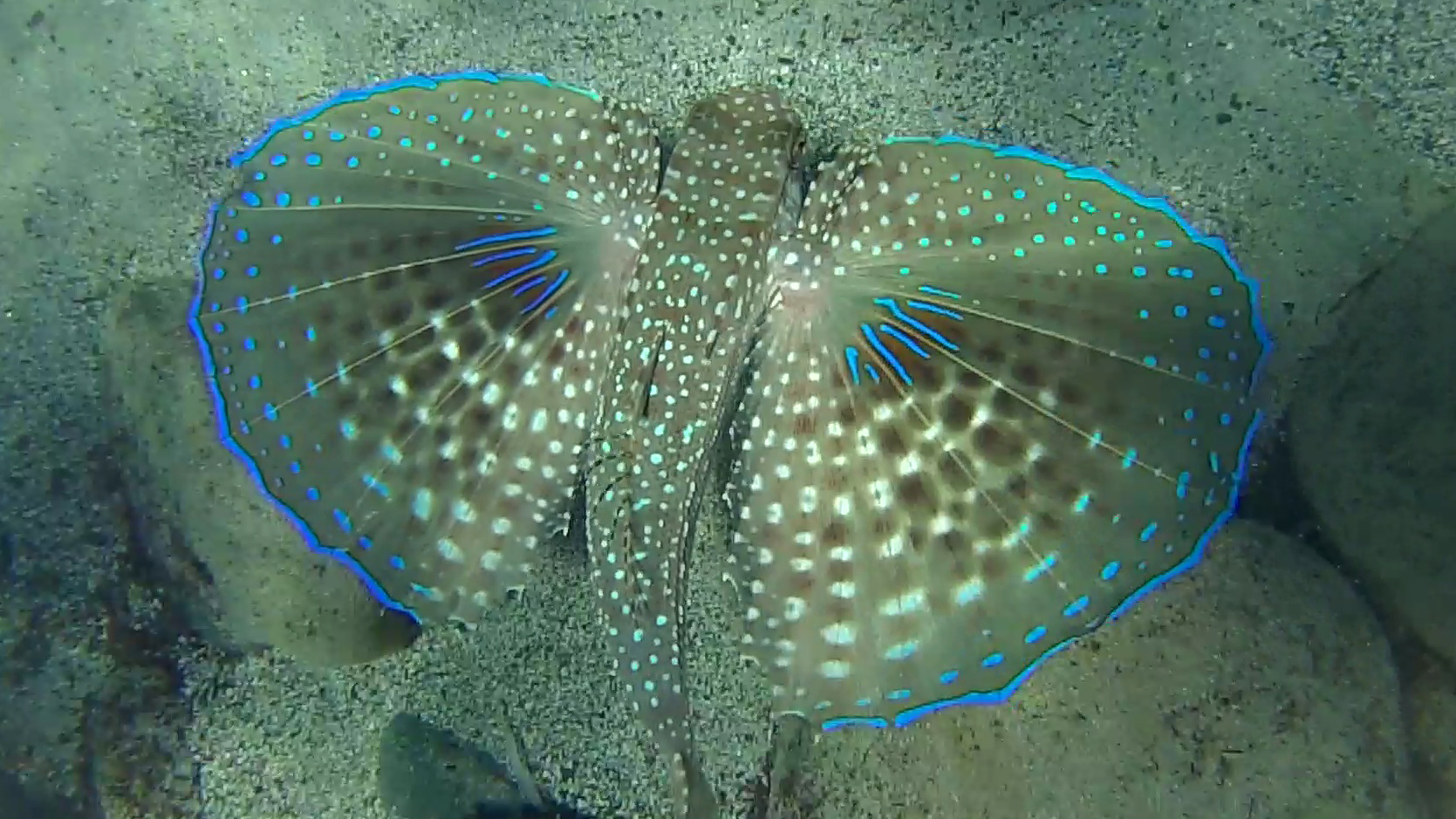
Flying Gurnard (Dactylopterus volitans Linnaeus, 1758), also known as owl fish, is a seawater fish belonging to the Dactylopteridae family.
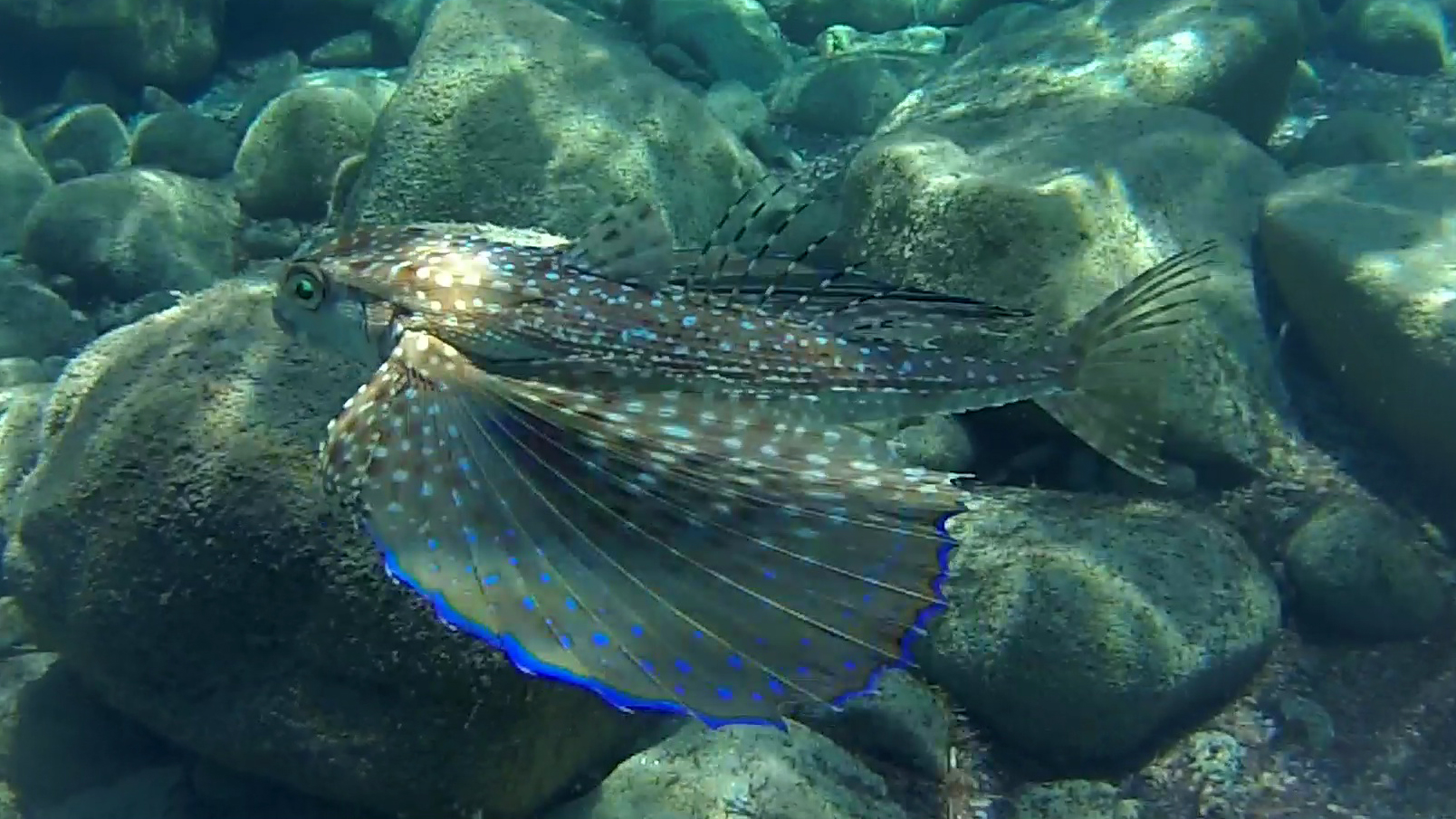
Distribution and habitat
Its habitat is benthic and has its limits between 10 and 80 meters deep, it inhabits the depths of the Mediterranean Sea, Madeira, the Azores and the Atlantic Ocean, from Angola to the European coast (sometimes to the north up to Southern England) in the eastern Atlantic and from Canada to Argentina in the western. The juvenile specimens are also found a few meters deep, on sandy bottoms.
Etymology of common names
The common names, owl fish and Flying Gurnard, derive from the belief that this fish can fly out of the water with its very large pectoral fins. However, this is impossible given the massive structure of the fish and especially its heavy head covered with bony plates.
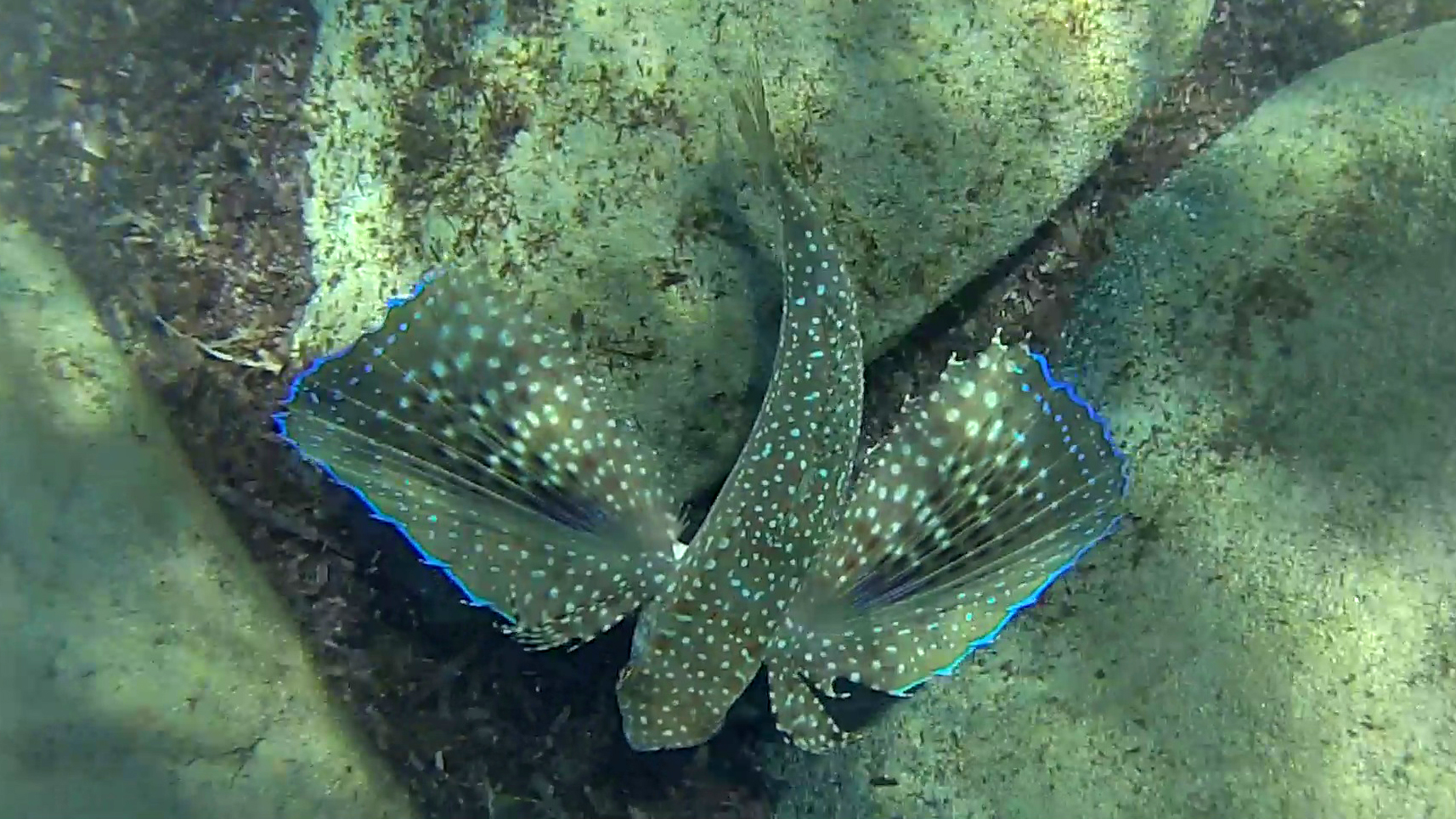
Description
The head is relatively large, with a large mouth, equipped with bone armor. The body is elongated, rather compressed on the back. It has two dorsal fins, the first is supported by spiny rays similar to spines (as well as the anal fin) while the second is softer. The ventral fins are pointed, the tail is elongated. The most visible characteristic of this species is the large pectoral fins, supported by long and robust rays, which together completely form a large ellipse, which allows the fish to “glide” close to the seabed.
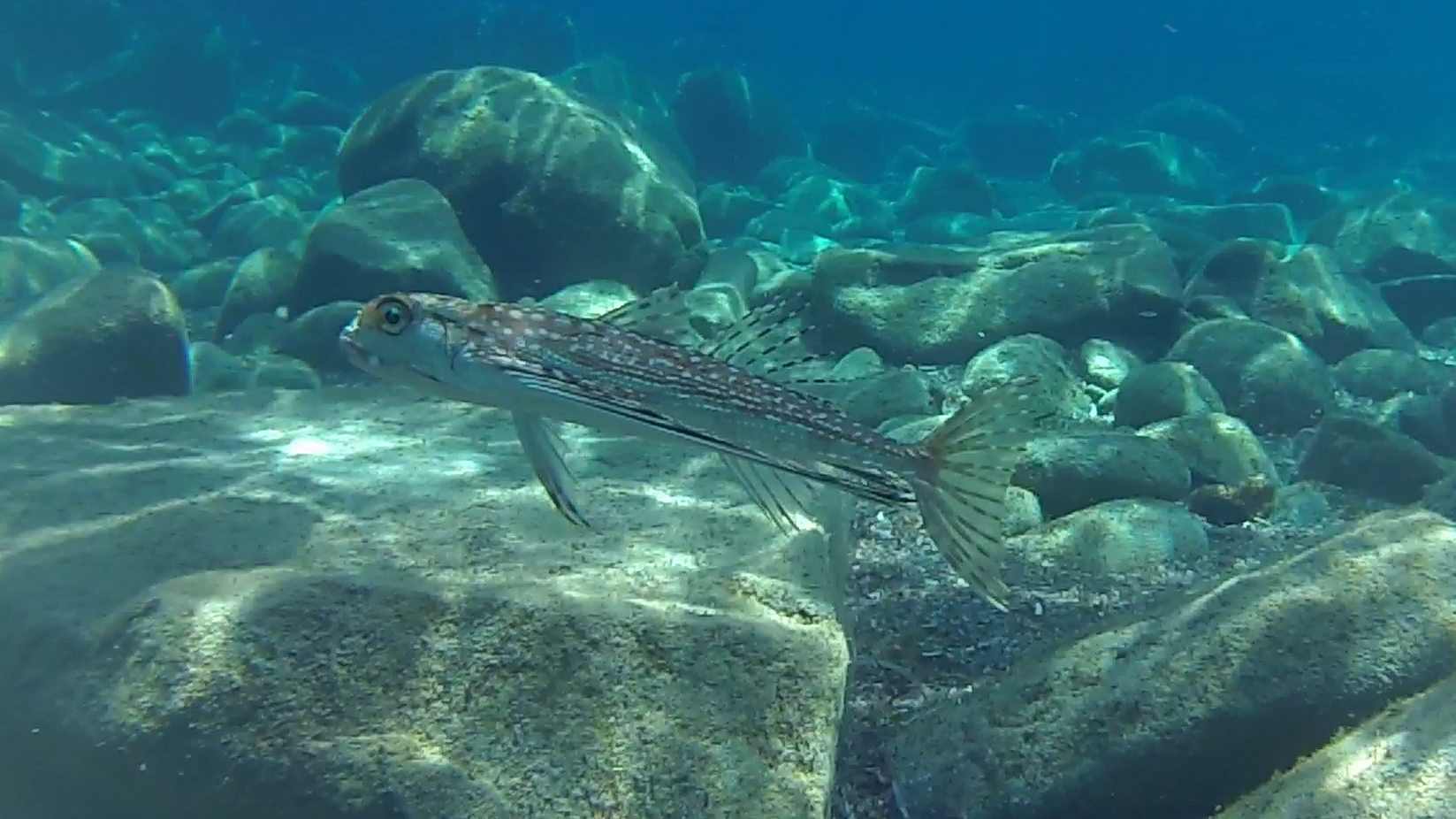
The livery is somewhat varied from specimen to specimen, with a background color ranging from gray to yellow to reddish, decorated with 3 or more brown vertical bands and dotted with white dots. The pectoral fins have the same color, but are dotted and also edged with an electric blue.
It reaches a length of 50 centimeters.
Supply
This species feeds on fish, bivalves and crabs.
Predators
An owl looking for food on the bottom The owl fish is prey to numerous species of fish including many species of the family Istiophoridae and sea birds (belonging to the family Laridae).
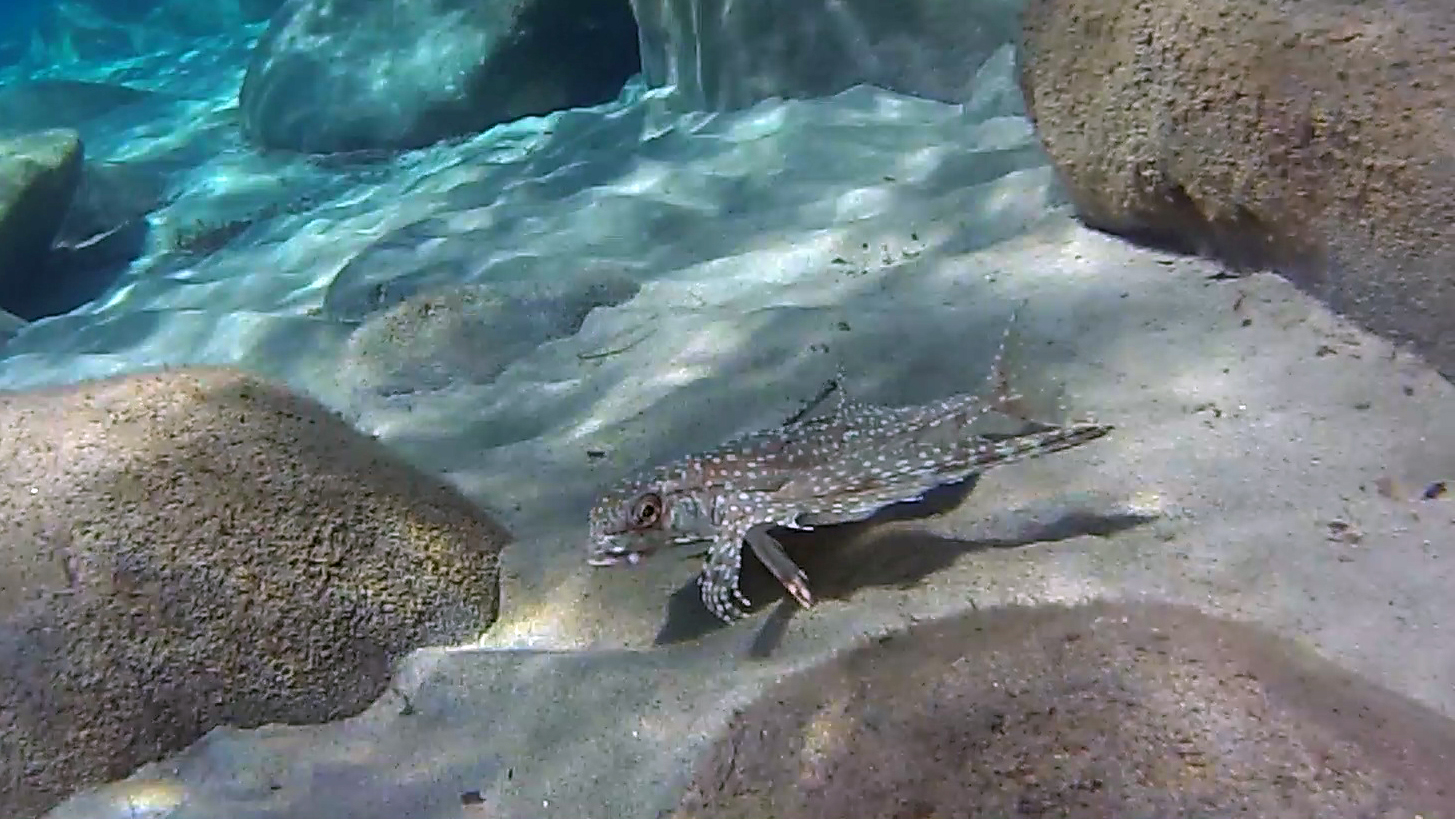
https://it.wikipedia.org/wiki/Dactylopterus_volitans
